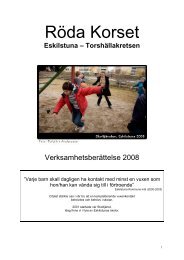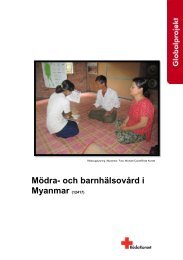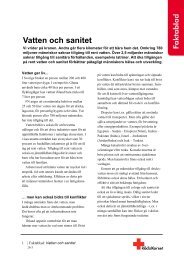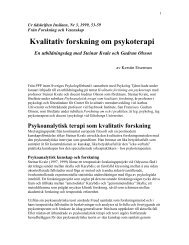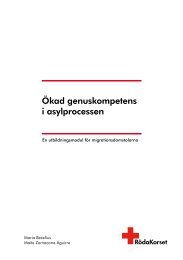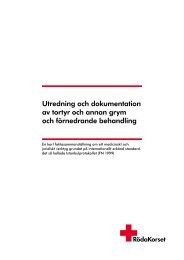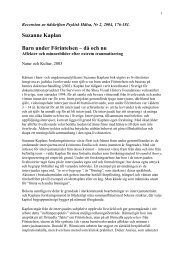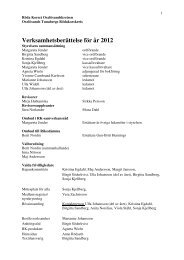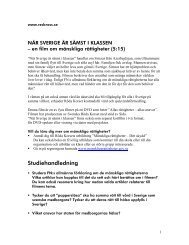chapter 4 - DRK
chapter 4 - DRK
chapter 4 - DRK
You also want an ePaper? Increase the reach of your titles
YUMPU automatically turns print PDFs into web optimized ePapers that Google loves.
Strictly under embargo until Wednesday 22 September at 00:01 GMT (02:01 Geneva time)and in a sense of hopelessness for the future. Research also demonstrates that thissystematic segregation of the poor entrenches and perpetuates poverty over generations.One Latin American expert refers to a “dissident conscience” which develops inmarginalized urban communities and is commonly expressed through violence. Whenthe excluded and the marginalized look around and see business owners evading tax,politicians buying votes and appointing family members and friends to public posts,or using public money for personal gain, they lose confidence in the institutions of thestate and begin to question what they gain from obeying the law.StrategiesThe recently passed benchmark – more than half the world’s population living inurban centres – served to focus international attention on a major crisis that has notbeen adequately addressed until now. Thus far, solutions to the problems of urbanviolence have been scattershot and poorly financed, with little in-depth evaluation ofwhat works and what doesn’t.Asking the police and criminal justice system to fix everything may only make mattersworse. A broad-based response looks at better urban planning, effective and inclusivelocal governance, community involvement, reform of police and judicial systems, educationand jobs for youth, effective international laws against organized crime, disarmamentand gun awareness, and tailored responses to the specific circumstances ofeach particular local context.Meaningful citizen involvement in local governance is key to reducing urban violence.The social contract between the state and society is based on an active dialogue aboutthe expectations that citizens have of the state, its capacity to provide services, includingsecurity, and to secure revenue from its population and territory to provide theseservices. In addition, because people’s needs and expectations of the state evolve overtime and the state’s capacity and resources are impacted by changes in both domesticand international political and financial conditions, this dialogue needs to be continuallyrevisited and the agreement updated. A fundamental precondition for an effectivesocial contract, therefore, is a set of effective political institutions and processesthrough which the state and its citizens can engage, consult and dialogue to renegotiateand reinstitutionalize aspects of the contract.As the government representatives closest to the people, strong local leaders can increase astate’s legitimacy. Local authorities that engage with constituents, respond to their needsand include them in decision-making can build trust in the community and encourageinter-group dialogue to ease any tensions. At the same time, community involvementin urban planning, service provision and violence-reduction strategies increasesthe chances that they will work. To ensure they can deliver on their commitments,municipal governments need to have enough autonomy and resources to act effectively.World Disasters Report 2010 – Focus on urban risk85



